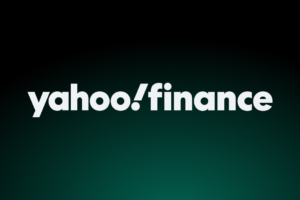Debt simply hasn’t been a major issue for many companies in the marijuana industry. There’s a simple reason for that: Banks wouldn’t loan them any money.
But it’s becoming easier for marijuana businesses to obtain loans. And some companies with core businesses outside of the cannabis industry have taken on debt to make acquisitions to jump on board the marijuana bandwagon.
Which marijuana stocks have the most debt? And should investors be worried about any of them?


Image source: Getty Images.
The biggest debtors
The five companies that operate in the marijuana industry with the highest total long-term debt levels right now are:
| Company | Total Long-Term Debt |
|---|---|
| Constellation Brands (NYSE: STZ) | $13.6 billion |
| Scotts Miracle-Gro (NYSE: SMG) | $2 billion |
| Aurora Cannabis (NYSE: ACB) | $599 million |
| Tilray (NASDAQ: TLRY) | $420.4 million |
| Aphria (NYSE: APHA) | $46.7 million |
Data sources: YCharts; company regulatory filings and press releases.
<p class="canvas-atom canvas-text Mb(1.0em) Mb(0)–sm Mt(0.8em)–sm" type="text" content="Constellation Brands is by far the biggest debtor. The company is also the newest of the five to enter the cannabis market. In 2017, the alcoholic beverage maker bought a 9.9% stake in Canopy Growth. Constellation increased its ownership interest in Canopy to 38% last year with an additional $4 billion investment.” data-reactid=”31″>Constellation Brands is by far the biggest debtor. The company is also the newest of the five to enter the cannabis market. In 2017, the alcoholic beverage maker bought a 9.9% stake in Canopy Growth. Constellation increased its ownership interest in Canopy to 38% last year with an additional $4 billion investment.
Scotts Miracle-Gro is in a distant second place on our list. The company has a long history in the consumer lawn and garden products business. But Scotts began taking on more debt several years ago to acquire suppliers to the U.S. cannabis industry.
The next three companies on the list are Canadian marijuana producers. Aurora Cannabis has the highest debt level of this group adding the company’s issuing of $345 million of convertible senior notes in January 2019 on top of its debt of close to $254 million at the end of 2018.
Tilray also has a high debt load thanks to its $450 million convertible notes offering in October 2018. Aphria’s total debt is well behind that of Aurora and Tilray right now. However, Aphria recently announced plans to offer $300 million of convertible senior notes.
More important factors
There’s something much more important when it comes to debt than the amount that a company owes: the ability of the company to repay the debt. Suppose, for example, you owe $100,000 and your friend owes $1 million. If you only make $30,000 per year and your friend makes $2 million per year, your debt load is much more concerning than your friend’s because you’ll have a bigger challenge paying off your debt.
Constellation made $8.1 billion in revenue last year. Scotts Miracle-Gro generated revenue of $2.7 billion in its latest fiscal year. Based on these figures, neither company’s debt appears to be too concerning.
Of course, the earnings for Constellation and Scotts were much lower — $3.4 billion and $63.7 million, respectively. But both companies still should be able to service their debt relatively easily.
<p class="canvas-atom canvas-text Mb(1.0em) Mb(0)–sm Mt(0.8em)–sm" type="text" content="What about Aurora, Tilray, and Aphria? The numbers look a lot scarier. None of the marijuana producers were profitable in their last reported quarter. With continued losses, the companies could have to take on more debt to fund operations or issue more shares, causing dilution in the value of existing shares. Neither is an appealing scenario.” data-reactid=”39″>What about Aurora, Tilray, and Aphria? The numbers look a lot scarier. None of the marijuana producers were profitable in their last reported quarter. With continued losses, the companies could have to take on more debt to fund operations or issue more shares, causing dilution in the value of existing shares. Neither is an appealing scenario.
No worries?
Investors probably don’t need to worry too much just yet about Aurora, Tilray, and Aphria, though. Sales are skyrocketing for all three companies. Aphria thinks it’s possible that revenue will reach 500 million Canadian dollars (around US$375 million) this year and double that amount in 2020. Aurora and Tilray could also continue to enjoy tremendous revenue growth.
<p class="canvas-atom canvas-text Mb(1.0em) Mb(0)–sm Mt(0.8em)–sm" type="text" content=" More From The Motley Fool ” data-reactid=”47″> More From The Motley Fool
<p class="canvas-atom canvas-text Mb(1.0em) Mb(0)–sm Mt(0.8em)–sm" type="text" content="Keith Speights has no position in any of the stocks mentioned. The Motley Fool recommends Constellation Brands. The Motley Fool has a disclosure policy.” data-reactid=”52″>Keith Speights has no position in any of the stocks mentioned. The Motley Fool recommends Constellation Brands. The Motley Fool has a disclosure policy.









